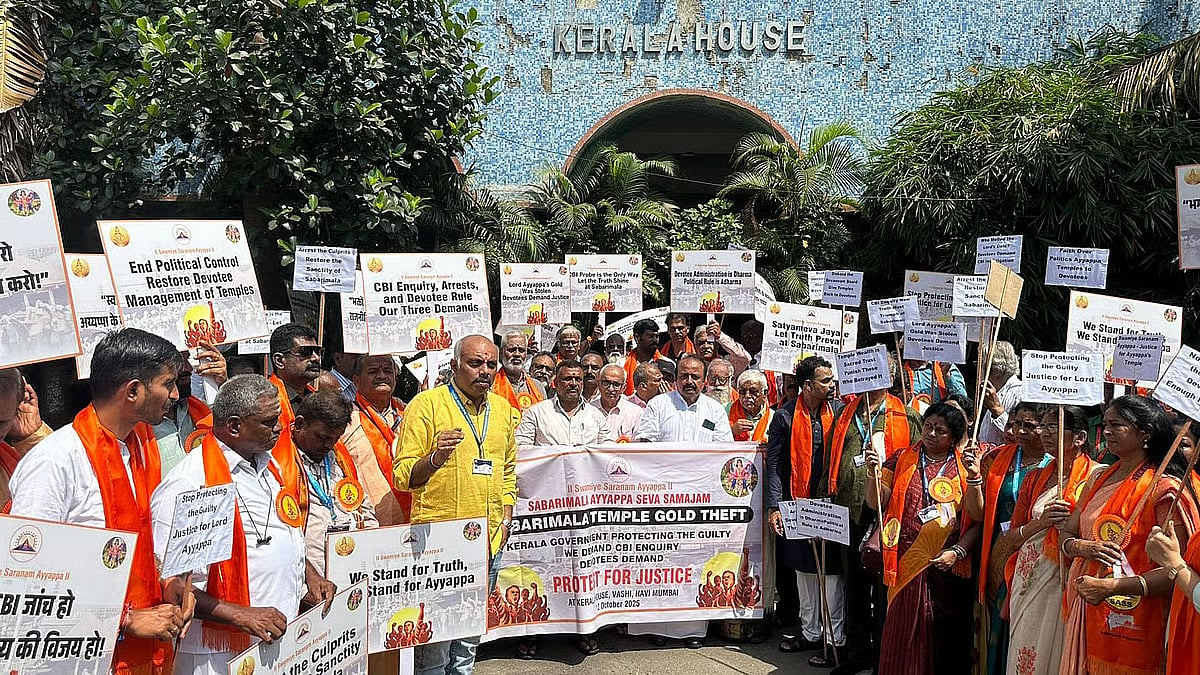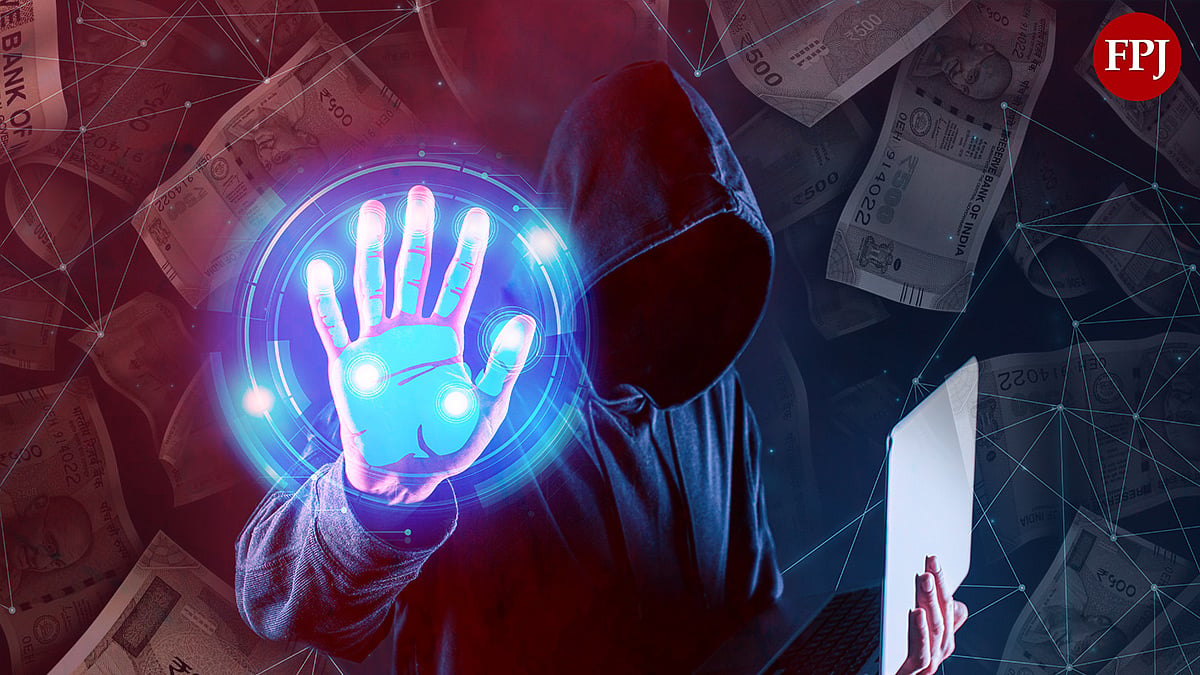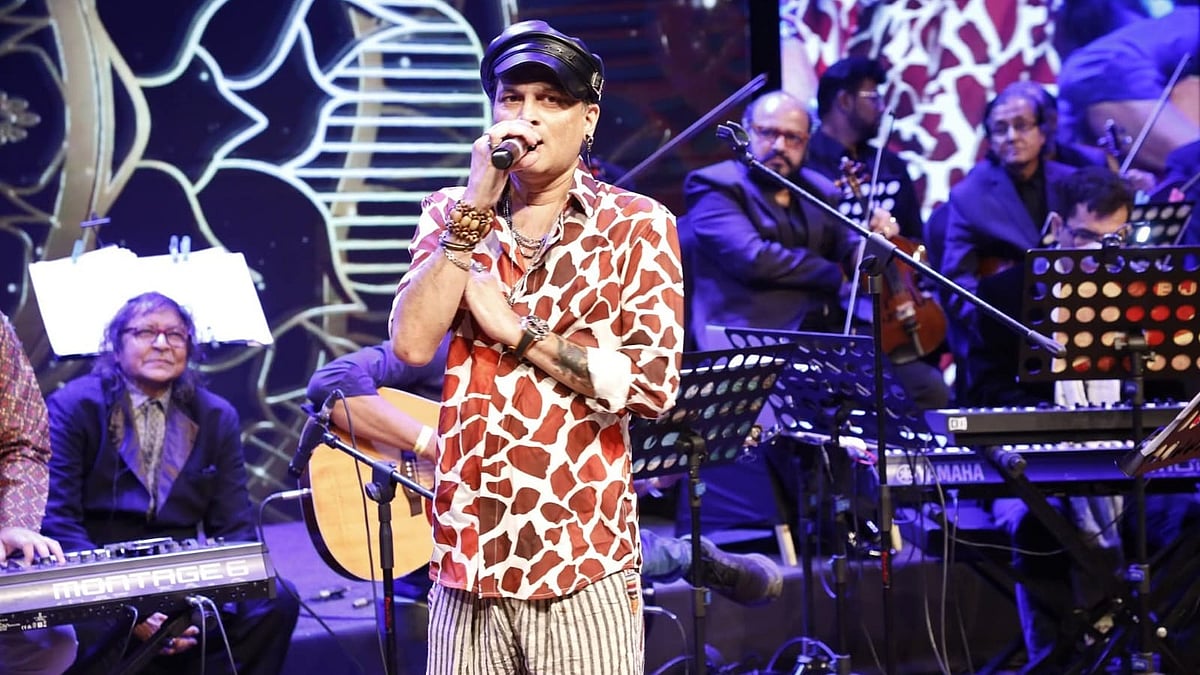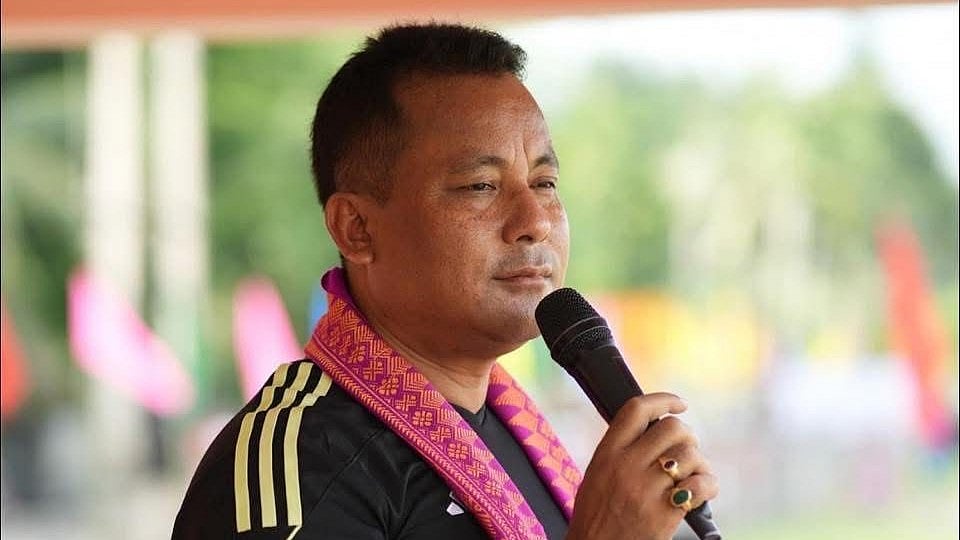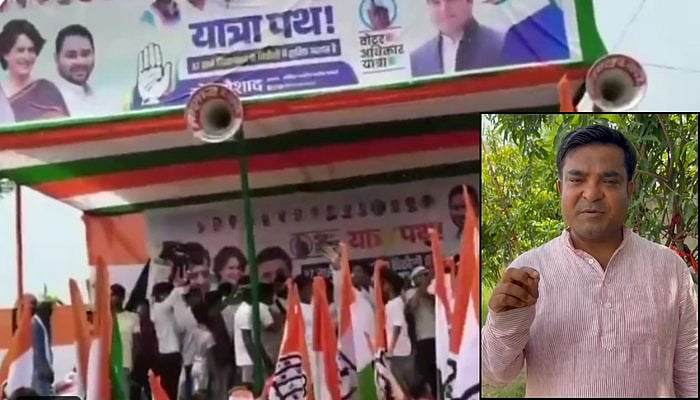I was saddened to see the picture in a newspaper of a poor Muslim family fleeing the city of Gurugram earlier this month. At the centre of the picture was a teenage girl walking with a suitcase on her veiled head. Her left hand was tilted up to keep the suitcase in balance; her right hand held a packed plastic bucket and plastic bag. Her faded, corn-coloured kameez was wet with sweat at her armpit, suggesting she must have walked quite a bit. To her left was a young man, seemingly her brother, carrying a gunny bag jutting out in places with all kinds of stuff in his right hand and a handbag in his left hand. Behind them walked a middle-aged woman, probably their mother, whose left arm was clasping a plastic container and handbag against her body and right hand holding a large plastic bag. In short, they were carrying their entire home in their hands. A few paces behind them, four or five policemen stood chatting near a parked, beacon-fitted police car, indifferent to their fate.
As I saw the picture, Prime Minister Narendra Modi’s words from a speech echoed in my ears: “I know what poverty feels like… I have got here by selling tea on a railway platform… I have not learnt of poverty from books. I have learnt of it from my life… I understand the pain of the poor naturally…”
They sounded like empty words — the highfalutin empathy of a demagogue. There was nobody to understand the pain of the teenage girl, her brother and her mother in the picture, nor of the thousands of other men and women who fled Gurugram fearing attacks by Hindu mobs —neither Prime Minister Modi nor Chief Minister Khattar. These men and women had migrated from Bihar, Jharkhand, UP, MP, Chhattisgarh and other states to Gurugram, an iconic city of India’s progress, to work in factories, shops and homes with a dream to improve their lives — to own a house and a motor vehicle, to give their children good education and to pay for medical expenses. Their dream was shattered.
Why? On July 31, a Muslim mob carried out a violent attack on a Hindu religious procession organised by the Vishwa Hindu Parishad and the Bajrang Dal at Nuh, a Muslim-majority district adjacent to the Gurugram district in Haryana. In retaliation, Hindu mobs set ablaze several slums and shops of Muslims and a mosque in the city of Gurugram. The Hindu retaliation did not stop there. Calls were given by VHP and Bajrang Dal leaders for an economic boycott of Muslims. “Those who hire Muslims as workers or artisans or lease property to them or buy goods or services from their shops would be treated as traitors,” they warned. Their men went about on motorcycles to warn Muslims to leave the city or face death and destruction. In order to show they meant it, they even carried out a few attacks.
I heard echoes of Prime Minister Modi’s words again: “I feel very happy when I see poor people making efforts to get out of poverty…My method to eliminate poverty is to empower the poor. If we empower them, they would come out of poverty by themselves…”
The experience of the migrant labourers, who came to Gurugram in order to get out of poverty and were hounded out by Hindu fanatics, was just the opposite. They were disempowered. They were barred from pursuing better livelihood opportunities than were available in their home towns or villages. They were denied all their constitutional rights: equal protection of laws (Article 14), no discrimination on grounds of religion (Article 15), freedom of movement and the right to undertake economic activity (Article 19) and protection of life and personal liberty (Article 21). They were denied freedoms in free India to go anywhere, do any job to improve their lives. This was not elimination of poverty, but perpetuation of poverty.
True, it was not the ‘double-engine’ government directly disempowering them. However, it was indirectly encouraging the Hindu fanatic groups that were disempowering them, and it came to the same thing. If the government were honestly committed to encourage the poor to avail of better livelihoods, they would have strongly dealt with the fanatic groups. Instead, they allowed them to hold meetings and take out processions to call for an economic boycott of Muslims. The ‘double-engine’ government bulldozed hundreds of houses and shops of Muslims in Nuh merely on suspicion (no proof) that they were used by the Muslim attackers. The houses of the Hindu fanatics who burnt down Muslim settlements and shops or killed an imam in Gurugram were not touched.
The State’s double standards in dealing with Hindu and Muslim criminality could inspire anything but trust in the government. The Muslim migrants had no option but to flee. They could clearly see that the government was interested more in political profiteering than in poverty alleviation. Prime Minister Modi preached economic inclusion. The VHP and Bajrang Dal practised economic exclusion. The Modi government did nothing to deter them. And why should they? The VHP and Bajrang Dal were siblings of the BJP. They worked at the grassroots to expand the Hindu vote bank for the BJP. They had to reward them, not punish them, and that is what they did. It was the empowerment of the Hindu fanatics and disempowerment of the Muslim migrants.
As I think of those who fled, the Prime Minister’s prime slogan — supposedly the kernel of his political philosophy — comes ringing into my ears: Sabka Saath, Sabka Vikas, Sabha Vishwas, Sabka Prayas. It means his government is committed to win everyone’s trust, take everyone along, develop the country with everyone’s efforts and distribute the fruits of development equitably. The migrants might very well ask him: Kiska Saath, Kiska Vikas, Kiska Vishwas, Kiska Prayas? (Whose trust do you want to win, whom do you want to take along, who should contribute to development and who should enjoy the fruits of development?)
Arun Sinha is a journalist and writer



